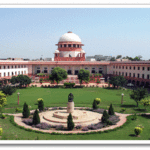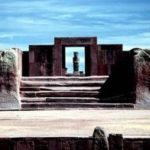Gay Life in Dominica is similar to other gay-unfriendly island-nations in the Caribbean. It is both known and unknown, visible only to those who want to know and invisible to those who reject it as anything acceptable. It is a cat-and mouse game of pretending to be normal in a heterosexual culture (many gays marry and have kids) while masking true desire for the love that cannot easily be spoken louder than a whisper. The law forbids it and the heart of some desire it.
Being Outed
The recent scandalous gay news from Dominica in 2012 involved a brazen gay couple comporting themselves on their stateroom balcony in ‘clear view’ of pedestrians on land. If you’ve been there, you know the ship’s berth is several hundred feet away from shore on a long pier that extends from the port. So ‘clear view’ means someone had to be looking through binoculars and having a camera with a telephoto lens ready at that moment in order to see the duo getting it on. Makes you wonder what all was going on.
It’s laughable and ironic that Dominica was ‘outed’ as a homophobic island-nation by a story about homosexual men. It’s not the usual or desirable way to have your Caribbean destination publicly advertised. But there it was, and several months later there is hardly a residual memory of the ignoble event except for the few involved as ‘victims’—and a prurient photographer.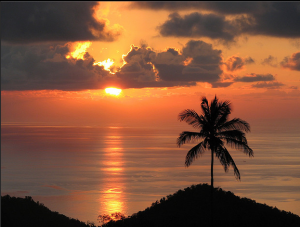
Illegal Status as a Throwback
But the country’s embarrassment is rather well deserved since it’s archaic and throwback British-imposed laws still criminalize same-sex behavior. Despite requests from the UN and threats of reducing foreign aid from the UK, the recalcitrant legislators still keep the anti-gay law on the law books.
Some LGBT folks are out and accepted by their friends and family, others are quietly left alone, others are harassed and bullied and occasionally injured, still others with strong self-confidence are amused and talk back to their offenders.
Nevertheless the status of LGBT people is one of living as outlaws with the discrimination and stigma deriving from cultural, religious, and social taboos and beliefs. “It appears that any expression of sexuality outside patriarchal heterosexuality is uniformly unwelcome,” wrote one researcher. (Bajan Queens, Nebulous Scenes: Sexual Diversity in Barbados by David A.B. Murray, Caribbean Review of Gender Studies, 2009) The long standing tradition of rejecting homosexual behavior was initiated by the British when Barbados and many other islands were small Caribbean colonies of the once-great Empire.
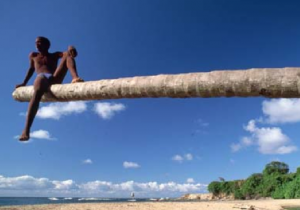 This is the dark side of homophobia (as if there is any light side!) that is reinforced at the local level by the law, along with Christian churches that condemn gay feelings as sin, and politicians who use the issue to whip up support at election time.
This is the dark side of homophobia (as if there is any light side!) that is reinforced at the local level by the law, along with Christian churches that condemn gay feelings as sin, and politicians who use the issue to whip up support at election time.
Modern Times
Ironically, it is now the British of a very different generation who are coercing all former UK territories to change course and remove anti-gay laws from the books. British Prime Minister David Cameron has announced that if current Commonwealth countries expect to continue receiving financial aid from Britain laws that discriminate against homosexuals will have to be reversed.
That is the conflict that all seventeen former British Commonwealth Caribbean colonies (now independent countries) now face. (Worldwide, 42 British Commonwealth states still outlaw homosexuality.) Change or lose money. Some have already altered their statutes while others are resisting the push. (In severe contrast the French Empire–including its overseas colonies–legalized homosexuality in 1791.)
Despite the law, which is mostly ignored, a gay visitor can easily walk around Dominica (without PDA–public display of affection) and not be disturbed, not due to tolerance but because sexual orientation is invisible. It can only be discovered by behavior, most of which occurs out of public view. So it’s easy to find comments such as this: “I visited and had no problems. Everyone was very friendly and didn’t really seem to care,” or “Dominica is paradise and every body is so friendly.” 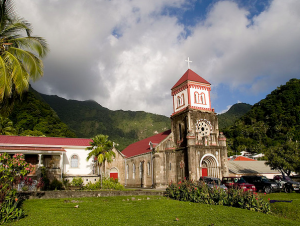
Trouble and Hope
Dominica is conservatively Christian thanks to the many missionaries and monks who landed after the British military took over in the 19th century. The prejudice here is deep and mostly silent but rears its ugly head on occasion
However, in March 2010 Dominica’s government signed a statement from the United Nations Human Rights Council in support of gay rights. (http://www.dominicacentral.com/general/community/dominicans-share-mixed-feelings-on-gay-rights-treaty-signed-by-government.html). Some committed homophobes were totally against the treaty, citing that it was a “way of technically letting in homosexuality into the country which is forbidden, according to the Holy Bible.”
In July 2011 a Dominican female human rights advocate wrote (http://lists.dominica-my-opinion.com/pipermail/dominica/Week-of-Mon-20110704/004279.html): “After reading the reaction comments made regarding this article (UN statement) with horror, 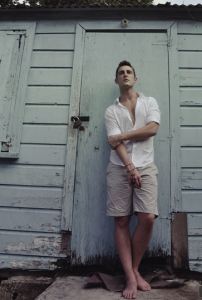 disgust and dread, listening to the comments on Q95 this morning, and recalling an incident which occurred in Portsmouth, Dominica not too long ago where an innocent man was murdered for being gay, I am of the opinion that it is time for “THE TALK” in Dominica. We have to help open the minds of our people on this issue or we will have an added lawyer of strife in the country… This is a serious issue!”
disgust and dread, listening to the comments on Q95 this morning, and recalling an incident which occurred in Portsmouth, Dominica not too long ago where an innocent man was murdered for being gay, I am of the opinion that it is time for “THE TALK” in Dominica. We have to help open the minds of our people on this issue or we will have an added lawyer of strife in the country… This is a serious issue!”
Lacking any organized pro-gay activists or educators in Dominica there is little hope for policy change in the near future. But given the generally calm manner of life in Barbados there is little need to raise a storm for or against homosexuality.
So the all-too-common tug of war of between rights vs abuses, light vs dark, homosexuality vs homophobia continues unabated in Dominica–and beyond.
Read more:
http://www.xtra.ca/blog/national/post/2012/03/22/Gay-men-arrested-in-Dominica.aspx
http://en.wikipedia.org/wiki/LGBT_rights_in_Dominica
http://www.demerarawaves.com/index.php/201202193339/Latest/caribbean-plans-regional-approach-to-abolish-gay-laws.html
——————–
Anyone interested in the condition and circumstance of LGBT people in the Caribbean should read the report issued by the International Lesbian and Gay Association in 2011. (http://transitionsunshine.info/2011/05/homophobia-in-the-caribbean-varies-widely/)
It is a complete report that lists the gay-friendly as well as homophobic states in the Caribbean. In the following nine countries homosexuality is criminalized:
Antigua and Barbuda, (photo right)
Barbados,
Saint Vincent and the Grenadines,
Dominica,
Grenada,
Jamaica,
Saint Kitts and Nevis,
Saint Lucia,
Trinidad and Tobago.
Fortunately in the Caribbean there are more countries in which same-sex activity is legal. These are:
Bahamas (although with high homophobia),
British Virgin Islands ( Tortola, Virgin Gorda, Jost Van Dyke, Anegada, + others), since 2000
Cayman Islands, since 2000
Cuba, since 1979
Dominican Republic,
Montserrat, since 2000
Netherlands Antilles,
Aruba, Bonaire, Curacao (off the Venezuelan coast)
Sint Maarten, Saba, and Sint Eustatius (southeast of the Virgin Islands)
French West Indies (Guadeloupe, since 1791, St Barths, Martinique, since 1791, St Martin)
Haiti, since 1986
Puerto Rico,
Turks and Caicos Islands, since 2000
US Virgins Islands (St. Croix, St. John, St. Thomas, Water Island), since 1984
Also, see this LGBT report on eleven Caribbean destinations that includes some gay owned and gay-friendly venues:
http://www.destinationcaribbean.net/index.php?option=com_content&task=blogsection&id=52&Itemid=197

